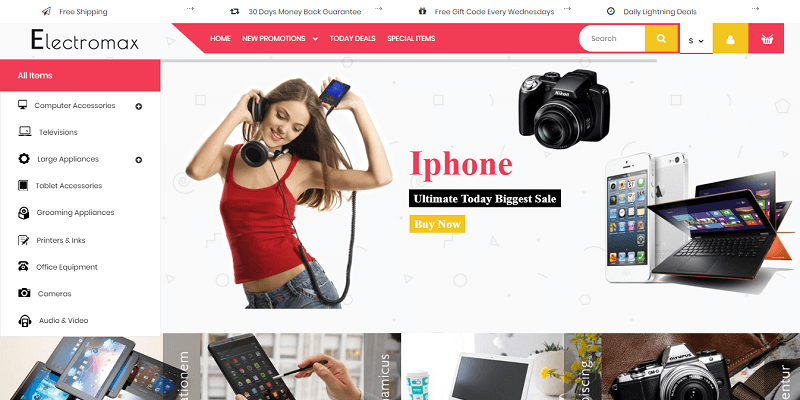Hey guys, today in this article, we will discuss the importance of a stellar web design for a thriving business. So keep reading.
A website is the cornerstone of a company’s online presence; serving a crucial purpose as the digital address of a business. While social media profiles are connected to third-party platforms, a well-designed website gives a company its own personalized digital presence.
This digital presence cements the brand’s image with credibility, legitimacy, and value; elevating the company’s prestige with an aura of trustworthiness. Consumers are more likely to connect with businesses that maintain a robust online presence with a well-designed website curated with meaningful content.
In contrast, the lack of a website or a poor web design riddled with technical issues compels potential consumers to switch to a competitor’s well-designed website. The significance of a stellar web design is far-reaching and multifaceted and integral to a business’s success.
Read on to explore the importance of web design in more detail.
Setting a Good First Impression
Your website is the first impression of your business as consumers worldwide seek digital proof of a company’s legitimacy before investing their hard-earned money in new products or services. Suppose your web design is outdated and doesn’t provide a smartphone-friendly experience. In that case, you’re highly likely to dissuade potential customers and lose clients to your competitors.
However, a user-friendly, immersive, and neatly color-coordinated website hooks visitors by providing an immersive experience that encourages them to browse further. Meaningful and engaging content enhances the appeal of the design, while ease of navigation helps them find what they seek.
Overall, a stellar web design sets a good first impression, allowing you to convert leads into paying customers.
An Addictive User Experience
Have you ever wondered what elements make certain websites or social media platforms addictive for us? Why do we continue using these websites; spending all our free time playing games, reading books, or chatting with our friends? Elements that define the user experience, such as layout, graphics, website architecture, plugins, widgets, and content, make a website addictive and immersive.
A website that offers an immersive experience, such as an online casino or gaming site; needs futuristic graphics and state-of-the-art architecture to prevent technical issues. Such websites draw users with aesthetics, technical functionality, graphic design, and realistic gameplays. They harness digital tools to mimic a real-world experience and deliver its digitized version to a tech-savvy audience.
Similarly, e-commerce websites like eBay and Amazon deliver an addictive retail experience that encourages shoppers to keep returning to shop more. They use immersive graphics and secure payment methods to build trust and AI-powered plugins to entice customers with personalized product suggestions.
Establishing Trust & Credibility
A well-designed website plays an instrumental role in building market credibility, trust, and reliability. It lends credibility to a brand by convincing consumers through the quality and functionality of the web design. A website’s uniqueness, user-friendliness, and technical appeal can persuade customers to shop from a brand based halfway across the world by establishing trust.
In contrast, a poorly performing website with technical issues and slow page-loading speed indicates a lack of quality; which reflects poorly on the company’s overall performance and offerings. It also sends a message that the brand does not spend on its image and digital presence; discouraging modern-day tech-savvy consumers from engaging with the brand.
It is natural for consumers to exhaust all means and mediums of online research before engaging with a brand, and this research typically begins with the brand’s website. If a brand does not have a website or its web design is outdated; it is bound to lose potential customers.
Final Thoughts
A stellar web design increases search engine ranking by satisfying human users and Google’s innumerable bots and crawlers observing online activity to determine rankings. A user-friendly website encourages customers and users to keep returning and engaging with your business. It lends credibility and legitimacy to a company by cementing its online presence with a personalized digital address.



